Log in
Statistics
We have 483 registered usersThe newest registered user is outlook_of_joeie69
Our users have posted a total of 48840 messages in 7205 subjects
THAT’S ENTERTAINMENT
CLICK ON ANY OF THESE LINKS TO FIND OUR EXTREME ENTERTAINMENT
UPDATED :
71 WGT TUTORIALS & 32 YOUNG46 TUTORIALS
CLICK HERE TO SEE OVER 100 YOUTUBE VIDEO TUTORIALS . FROM WGTers , WGT & YOUNG46 FORUM UPDATE
TO THE MANY WELCOME GUESTS . THIS FORUM IS NO LONGER A COUNTRY CLUB WEBSITE FOR A WGT COUNTRY CLUB . PLEASE FEEL FREE TO READ THE FORUMS.
THERE ARE MANY TOPICS OF INTEREST . OR NOT . THIS WEBSITE IS AN INFORMATION AND ENTERTAINMENT WEBSITE ONLY .
MUCH OF THE CONTENT IS ARCHIVES OF PURPOSES PAST .
THERE ARE SOME MORE CURRENT TOPICS .
REGISTRATION IS NOT NECESSARY TO READ THROUGHOUT .
REGISTRATION IS EASY AND FREE . THIS IS AN AD FREE WEBSITE . NOTHING IS EVER REQUESTED FROM REGISTERED MEMBERS .
REGISTRATION ENABLES COMMENTING ON TOPICS . POSTING NEW TOPICS . FULL ACCESS TO THE WEBSITE IMAGE HOST . WHICH IS A VERY COMPLETE AND CONVENIENT TOOL .
PLEASE ENJOY .
TIER & AVERAGE REQUIREMENTS
BASIC LEVEL AND AVERAGE REQUIREMENTS , AND SATURATION

WHILE YOUR HERE
WHILE YOUR HERE :
CHECK OUT THE INCREDIBLE PHOTOGRAPHY IN
MY SERIES
THIS USED TO BE THE HOME OF OUR WORLD CLOCK . WHICH CAN NOW BE FOUND IN ITS OWN FORUM ON THE MAIN PAGE ..
THERE ARE MORE WORLD CLOCKS INSIDE HERE .
WORLD CLOCK
FB Like
EXTRA WORD GENIUS WORDS OF THE DAY 2 pages
Page 2 of 2
Page 2 of 2 •  1, 2
1, 2
 Re: EXTRA WORD GENIUS WORDS OF THE DAY 2 pages
Re: EXTRA WORD GENIUS WORDS OF THE DAY 2 pages
2022 Gave Us These New Phrases and Words
The English language is constantly evolving, but social media has cranked up the rate at which it changes. As quickly as a new dance can appear and disappear from TikTok, so can a new in-the-know slang term. Many of these terms and phrases have been around since before 2022, but they exploded into the zeitgeist over the last year. From living like a main character to feeling the vibe, here’s a roundup of some of the most popular slang in 2022.
Tech reporter Elena Cavender said, “Defining yourself by an era is another way to make sense of your life on the internet. By segmenting our lives into eras, we create a coherent narrative — one with a beginning and end. Being out of one era and into another is a marker of growth and resilience.”
The English language is constantly evolving, but social media has cranked up the rate at which it changes. As quickly as a new dance can appear and disappear from TikTok, so can a new in-the-know slang term. Many of these terms and phrases have been around since before 2022, but they exploded into the zeitgeist over the last year. From living like a main character to feeling the vibe, here’s a roundup of some of the most popular slang in 2022.
Main Character
The “main character” is “a person who lives, breathes, and is like the protagonist of a story or series.” On TikTok, an early usage of the “main character” theme by user @ashlaward pairs harp music with a voice-over urging people to “start romanticizing their life.” “Main Character Syndrome” is contagious: “The ‘main character’ meme indulges that desire to be seen — its relatability comes from how we all want a cute crush to lock eyes with us as we drudge through life, we want celebrities to spot us at concerts, we want to be singled out for being exceptional.”Understood the Assignment
To “understand the assignment” is to “give 110%” — whether it’s your behavior, your outfit, or whatever you have to give. According to Google Trends data, this was the most-searched slang term of 2022. It originated from American rapper Tay Money’s viral TikTok song, in which she says, “Damn Tay you killed this / I understood the assignment (duh!).”Nepo Baby
A “nepo baby” is a successful person — usually in the arts — who is born to famous, wealthy, or otherwise well-connected parents. Twitter user Meriem Derradji called Euphoria actress Maude Apatow a “nepotism baby” after she realized director Judd Apatow and actress Leslie Mann were Apatow’s parents. As internet discourse dissected the long history of nepotism in Hollywood, the phrase was shortened to “nepo baby,” which carries with it a derisive tone.Entering My [BLANK] Era
This is another term that took off on TikTok and Twitter — it serves as a means to easily express the idea of personal rebranding or self-improvement (sometimes ironically) in digital spaces. Someone might claim to be “entering my villain era” if they’re coming out of a bad breakup and looking for a rebound, for example. As the names of historical eras — such as the Middle Ages and the Renaissance — give us a way to mark time and group events with similar characteristics, so can an individual’s eras.Tech reporter Elena Cavender said, “Defining yourself by an era is another way to make sense of your life on the internet. By segmenting our lives into eras, we create a coherent narrative — one with a beginning and end. Being out of one era and into another is a marker of growth and resilience.”
It’s Giving…
This phrase is used to introduce a description (“It’s giving 1920s glam!”), or if it’s used alone, it implies that something is working for you. If someone walks into the room in a fabulous outfit, you might say, “Her dress is giving.” Alternatively, if you don’t like it: “It’s not giving.” This phrase is appropriated from LGBTQ+ ballroom culture, which was brought into the modern lexicon by RuPaul’s Drag Race and Black Twitter.Vibe
“Vibe” can be a noun or a verb and can be applied to nearly anything. As a noun, it describes a distinctive emotional atmosphere (which is entirely subjective to what the “vibe” entails), but as a verb, it means “to chill, be at peace, let life do its thing.” In many states, it was one of the most-searched slang terms of 2022. 10 Words That Are Celebrating an Anniversary in 2023
10 Words That Are Celebrating an Anniversary in 2023
10 Words That Are Celebrating an Anniversary in 2023
Have you ever considered that words have anniversaries? Each dictionary entry includes the date to which lexicographers can trace the word’s first usage — sometimes when it popped up in common speech and other times when it appeared in print. This allows us to get a better idea of why the word emerged at the time that it did — was it political, a scientific advancement, a social movement, an invention, or slang?
Terms including “detox,” “hard disk,” and “video game” were all coined in 1973, giving us a snapshot into the technological revolution that was beginning 50 years ago. However, the history of the English language goes back much further, and many words we use today are celebrating a 100th, 200th, or even 500th anniversary in 2023.
[Editor’s note: Different dictionaries may have slightly different information and dates. These first dates in print are according to Merriam-Webster.]
Have you ever considered that words have anniversaries? Each dictionary entry includes the date to which lexicographers can trace the word’s first usage — sometimes when it popped up in common speech and other times when it appeared in print. This allows us to get a better idea of why the word emerged at the time that it did — was it political, a scientific advancement, a social movement, an invention, or slang?
Terms including “detox,” “hard disk,” and “video game” were all coined in 1973, giving us a snapshot into the technological revolution that was beginning 50 years ago. However, the history of the English language goes back much further, and many words we use today are celebrating a 100th, 200th, or even 500th anniversary in 2023.
[Editor’s note: Different dictionaries may have slightly different information and dates. These first dates in print are according to Merriam-Webster.]
1923 — 100th Anniversary
Aerosol, debunk, dial tone, guesstimate, Hollywood, immunogenic, micro, sickle cell, snowmobile, ultrasoundDebunk
This verb has risen to the top of the political jargon list. Today, to “debunk” is to “expose the sham or falseness of” something. The word was first recorded in 1923 and uses the late 19th century root word “bunk,” meaning “nonsense.” “Bunk” came into the English lexicon around 1820, thanks to Congressman Felix Walker, who represented Buncombe County, North Carolina. During a debate, the politician gave a lengthy — and somewhat aggressive and illogical — speech for Buncombe. Soon after, “buncombe” (later respelled “bunkum”) became synonymous with nonsensical political blather.Hollywood
The 1920s were a time of innovation that solidified America as a leader in the film industry. The golden age of cinema was on the horizon — but what word could possibly signify such a force? It was as simple as geography: “Hollywood.” The term was first recorded (to describe the entire American motion-picture industry) in 1923, stemming directly from the name of the Hollywood neighborhood of Los Angeles. The geographical name is older — it was written on a deed in 1887. One leading theory about the name is that Harvey H. Wilcox (the “Father of Hollywood”) chose it because of the widespread Christmas holly that grew in the area.1823 — 200th Anniversary
Absolutism, bored, caffeine, diorama, flunk, gauged, misfit, puppy love, stereo, thesaurusCaffeine
From early morning wake-up calls to all-nighters, caffeine is a golden ticket to productivity for many people. Its technical definition, however, is “a bitter alkaloid C8H10N4O2 that is used medicinally as a stimulant or diuretic.” Caffeine was discovered by German scientist Friedlieb Ferdinand Runge in 1819 when he became the first to isolate and crystallize the substance. The word entered English a few years later in 1823, derived from its German name, kaffein, from the word for coffee, kaffee.Thesaurus
Today, a thesaurus is most often described as a book of words and their synonyms. Back in 1823, however, the term “thesaurus” entered English after it was borrowed from Latin, where it described an ancient treasury. Soon the word was metaphorically applied to books containing a collection — a “treasury” — of words or information. Peter Mark Roget wrote the first draft of his famous work, Roget’s Thesaurus (the leading English-language thesaurus), in 1805, and its first edition was finally printed in 1852. His work led to the common notion that a thesaurus was a book of organized, semantically related words.1723 — 300th Anniversary
Aria, buoyance, calculated, cyst, geological, nearside, pedometer, pollen, reaffix, skatingGeological
Volcanoes, meteorites, fossils, and earthquakes — new geological discoveries happen virtually every day. “Geological” relates to the study of geology, the history of the Earth’s physical structure, especially in reference to rocks. While “geology” didn’t enter English until the 18th century, the word geologia (“the study of earthly things”) has existed in medieval Latin since the 14th century, proving its significance among the sciences for centuries.Pedometer
Today, smartwatches and phones have built-in pedometers that record the distance a person covers on foot by tracking body motion during each step. While this might seem like a modern invention, the word “pedometer” has been used in English since 1723, from the French pédomètre (ped means “foot” in Latin, and mètre is “meter” in French). And the idea of a pedometer is even older than the word itself. Italian polymath Leonardo da Vinci is credited with creating the first step counter, which was worn around the waist, in the 15th century.1623 — 400th Anniversary
Autonomy, coronate, cowboy, exposed, flushed, indulge, liberate, philanthropy, scenic, swigCoronate
To “coronate” is to “crown” or recognize imperial power, especially in a monarchy. This word entered English in 1623 from the Latin corōnare, meaning “to deck with flowers.” Two years later, the coronation of King Charles I of England took place. Four centuries later, the word will become buzzworthy again during the 2023 coronation ceremony for King Charles III of the United Kingdom.Philanthropy
The oldest definition of “philanthropy,” from 1623, is “an effort to promote goodwill to fellow humankind.” Later, it became a direct synonym for an organization (a charity) or a gift for humanitarian purposes. The direct translation of “philanthropy” from Latin is “love of mankind” — a fitting way to describe these generous acts. Today, some of the most famous events in the world are philanthropic, from the Met Gala to the Make-A-Wish Foundation experiences.1523 — 500 Year Anniversary
Aloof, badger, control, dilemma, estray, gratitude, pioneer, salesman, verification, yourselvesDilemma
As a popular headline choice for sensationalized news stories, “dilemma” traditionally denotes “an undesirable or unpleasant choice” — it’s broadly used as a synonym for “predicament.” When it first came into English in 1523, it had a slightly different meaning as “an argument presenting two or more equally conclusive alternatives against an opponent” — it wasn’t as negative as it is today. It likely came from the Greek dilēmmatos, meaning “two assumptions” (di meaning “two” and lēmma meaning “assumption”).Pioneer
Today, the most popular definition of “pioneer” is “a person or group that creates a new line of thought, activity, method, or development.” For example, “NASA is a pioneer in extraterrestrial research.” Pioneers come in all shapes, sizes, and fields, from art and language to science and exploration. The older definition of the word is more limited and refers to a member of a military unit (usually of construction engineers). It entered English in 1523 as a French loanword, pionnier, of a similar meaning: “A worker employed on field fortifications who accompanies an army.”Last edited by Paul on Sat 15 Jul 2023, 10:07 am; edited 1 time in total
 9 Unusual Words Used to Describe People From Certain Places
9 Unusual Words Used to Describe People From Certain Places
9 Unusual Words Used to Describe People From Certain Places
A demonym is a word for a resident of a certain place. Most demonyms are predictable — “Pennsylvanians” are from Pennsylvania, “Canadians” are from Canada, and “Bostonians” are from Boston. But where are “Dalmatians” and “Cariocas” from? Some demonyms sound nothing like their place name, and others don’t sound like they apply to humans at all. Let’s take a look at some fun and surprising demonyms from around the world.
When the Netherlands became a separate country in 1815, English speakers began calling it “Holland” (meaning “woodland” in Old English) but still referred to its people as Dutch. Even today, English speakers refer to residents of the Netherlands as Dutch (not Netherlandish or Hollanders, for example). The Dutch, however, call themselves “Nederlanders” in their own language.
A demonym is a word for a resident of a certain place. Most demonyms are predictable — “Pennsylvanians” are from Pennsylvania, “Canadians” are from Canada, and “Bostonians” are from Boston. But where are “Dalmatians” and “Cariocas” from? Some demonyms sound nothing like their place name, and others don’t sound like they apply to humans at all. Let’s take a look at some fun and surprising demonyms from around the world.
Albanian
“Albanian” not only describes a resident of the European country of Albania, but also describes a resident of Albany, the capital city of New York state. Albanian is also a language that is spoken in Albania, Serbia, Kosovo, and other parts of the Balkan peninsula.Bajan
Bajans are from the Caribbean island of Barbados. This unique term has been around since the 18th century. It doesn’t follow the typical English rules for demonyms, though it is used more than its counterpart, “Barbadian,” which didn’t appear in English until the 1940s.Cariocas
This not-so-obvious demonym describes residents of Brazil’s most famous seaside city, Rio de Janeiro. The word came from the Indigenous Tupi-Guarani word kari'oka, meaning “white person’s house.” “Carioca” emerged when the [url=https://www.rio.com/practical-rio/carioca#:~:text=When the Portuguese settled in,to the local people today.]Portuguese[/url] came to the region and the settlements were called kari'oka by the Tupi. Today, “cariocas” generally describes all people from Rio de Janeiro and is also the name of a traditional dance (the carioca) similar to the samba.Dalmatian
“Dalmatians” can refer to both people and dogs. The black-and-white spotted dog breed is so popular that Disney even created a few movies about 101 of them. As for the human Dalmatians, they hail from Dalmatia, Croatia, a coastal region on the Adriatic Sea. It’s believed that the dog breed originated there in the 18th century, giving the canines their name.Dutch
If someone is Dutch, they’re from the Netherlands — but this demonym has a complicated history. The word “Dutch” was [url=https://www.dictionary.com/e/demonym/#:~:text=The Old English cousin to,now just the Netherlands today.]derived[/url] from the Old English word “thiod” or “theod,” meaning “people or nation.” (This also contributes to why Germany is called “Deutschland” by Germans — the names are etymologically related.) In the 16th century, English speakers began referring to people who lived in the Netherlands and Germany as “Dutch.” “High Dutch” referred to what is now southern Germany, and “Low Dutch” referred to the present-day Netherlands.When the Netherlands became a separate country in 1815, English speakers began calling it “Holland” (meaning “woodland” in Old English) but still referred to its people as Dutch. Even today, English speakers refer to residents of the Netherlands as Dutch (not Netherlandish or Hollanders, for example). The Dutch, however, call themselves “Nederlanders” in their own language.
Frankfurter
In English, a Frankfurter is both a seasoned sausage (sometimes synonymous with “hot dog”) and a resident of Frankfurt, Germany. The word was adopted into American English in the late 19th century from “Frankfurter wurst,” meaning “sausage of Frankfurt,” because the sausages made in the U.S. closely resembled those made in Germany.Hamburger
In the same token as “Frankfurter,” a resident of Hamburg, Germany, can be called a “Hamburger” in English. Adding an “-er” to the end of a place name to make it a demonym is common in English (as in “New Yorker”), so it’s no surprise that “Hamburger” exists, although it is convenient that it’s also a favorite American food. In this case, the demonym came before the food. Since the early 17th century, a “Hamburger” was a “native of Hamburg” in English; the namesake meat patties weren’t introduced until the late 19th century.Neapolitan
“Neapolitan” can describe a person, an ice cream flavor, or a pizza. Since the early 15th century, a resident of Naples, Italy, has been described in English as a “Neapolitan.” The English preserved the Greek name of the city, “Neapolis.” Neapolitan ice cream (typically composed of vanilla, chocolate, and strawberry) was introduced in the 1870s when Italian immigrants brought similar ice cream varieties with them, naming this one after Naples. Neapolitan pizza is a Naples-style pizza topped with tomatoes and mozzarella cheese.Salemander
A salamander is a lizard-like amphibian, but switch a vowel and you can describe a resident of Salem, Massachusetts. “Salemander” might not be the most widely used demonym for Salem (that would be “Salemite”), but it’s certainly the most fun. In a 2015 poll asking, “What do you call someone who lives in Salem?,” 62% of residents voted for “Salemite,” but the runner-up was “Salemander.”Last edited by Paul on Sat 15 Jul 2023, 10:08 am; edited 1 time in total
 "Bonus" Is the New "Step" for Blended Families
"Bonus" Is the New "Step" for Blended Families
"Bonus" Is the New "Step" for Blended Families
The “wicked” and “evil” stepmothers in the Cinderella and Snow White fairy tales have long instilled fear in children that their lives will be made miserable by a parent’s new partner. Even more lighthearted fare, such as The Parent Trap and The Brady Bunch, include a level of dread related to stepfamilies.
While stepfamilies are a growing norm, the etymological roots of “step” cast some light on why many modern families prefer to use another option.
Today, the word has much broader usage and application to stepfamilies made from a variety of sources, including divorce, remarriage, partnership, adoption, fostering, and chosen families. The terminology is evolving away from the concept of loss and starting to better reflect the fact that for many, a stepfamily is more about what is gained.
Claire Gillespie, a self-described bonus mom, wrote for Parents.com that the term “step” never sat well with her, but it felt especially wrong when a new baby came into the family. “I decided it was time for ‘step’ to step aside. Initially, I experimented with ‘blended family’ — better, but still not quite right (too much like a caffeinated beverage, maybe?).” She came across the Swedish dramedy Bonus Family (available to stream on Netflix), and said, “The chord was struck. That’s what we are.”
“Bonus” has even received royal approval. Princess Beatrice used the term to describe her bonus son after marrying Edoardo Mapelli Mozzi in 2020, and Brazilian supermodel Gisele Bündchen mentioned in a live Instagram Q&A that she also prefers the term for her bonus child (with now-ex-spouse Tom Brady).
The “wicked” and “evil” stepmothers in the Cinderella and Snow White fairy tales have long instilled fear in children that their lives will be made miserable by a parent’s new partner. Even more lighthearted fare, such as The Parent Trap and The Brady Bunch, include a level of dread related to stepfamilies.
While stepfamilies are a growing norm, the etymological roots of “step” cast some light on why many modern families prefer to use another option.
The Orphan
In Old English, steop meant “bereave,” and that word transitioned into the prefix “step.” In the Old English sense, a “stepchild” was an orphan, someone who had lost a parent (not necessarily both) and was experiencing bereavement. A “stepfather” or “stepmother” was therefore someone who became a surrogate parent to an orphaned child through remarriage. This notion of grief is bolstered by a sense of hardship in Latin, in which the word for “stepson” (privignus) is closely related to the word for “deprived” (privus).Today, the word has much broader usage and application to stepfamilies made from a variety of sources, including divorce, remarriage, partnership, adoption, fostering, and chosen families. The terminology is evolving away from the concept of loss and starting to better reflect the fact that for many, a stepfamily is more about what is gained.
Bonus Family
“Bonus” is the new “step” — bonus mother, bonus father, bonus siblings, bonus family. It is the preferred term for many with non-biological family members to represent the joy and beauty of “something extra” without taking away the meaning, importance, or memory of their biological family or family of origin.Claire Gillespie, a self-described bonus mom, wrote for Parents.com that the term “step” never sat well with her, but it felt especially wrong when a new baby came into the family. “I decided it was time for ‘step’ to step aside. Initially, I experimented with ‘blended family’ — better, but still not quite right (too much like a caffeinated beverage, maybe?).” She came across the Swedish dramedy Bonus Family (available to stream on Netflix), and said, “The chord was struck. That’s what we are.”
“Bonus” has even received royal approval. Princess Beatrice used the term to describe her bonus son after marrying Edoardo Mapelli Mozzi in 2020, and Brazilian supermodel Gisele Bündchen mentioned in a live Instagram Q&A that she also prefers the term for her bonus child (with now-ex-spouse Tom Brady).
One Size Does Not Fit All
For some families, neither “step” nor “bonus” may sit right. They may come up with their own variation, whether that’s using the word for “mother” in another language, calling a bonus parent by their first name, or something even more personal. It is always best to simply ask what term someone prefers and make sure to use it in the future.Last edited by Paul on Sat 15 Jul 2023, 10:09 am; edited 1 time in total
 The Word Origins of "Endorphin," Our Bodies’ Natural Morphine
The Word Origins of "Endorphin," Our Bodies’ Natural Morphine
The Word Origins of "Endorphin," Our Bodies’ Natural Morphine
If you’ve ever had a serious accident or major surgery, you may well have been given morphine at the hospital. This strong painkiller blocks pain signals traveling from nerves to the brain. In 1975, at the University of Aberdeen, Dr. Hans Kosterlitz and colleague John Hughes discovered a natural version of this substance in humans. They identified a chemical, produced by the pituitary gland, that similarly reduces pain and creates a sense of happiness or well-being. Because of its similarities to the well-known opiate, it was named the "endorphin," borrowing from "morphine."
In Ovid’s Metamorphoses, Morpheus is a dream-shaper who happens to sleep in a cave full of poppy seeds. His special power is the ability to influence the dreams of high-status individuals, such as kings, gods, and heroes.
The ancient Greeks and Romans certainly knew about the sleep-inducing and narcotic properties of poppies. In addition to Morpheus, the Greek gods Hypnos (Sleep), Nyx (Night), and Thanatos (Death) were depicted as wreathed with poppies or carrying poppies in their hands. The ancient physician Hippocrates also frequently mentioned poppy as a hypnotic and narcotic drug in his writing. In modern references, morphine is known by a slew of slang or street names that include "dreamer" and "god’s drug," linking to its ancient origins.
If you’ve ever had a serious accident or major surgery, you may well have been given morphine at the hospital. This strong painkiller blocks pain signals traveling from nerves to the brain. In 1975, at the University of Aberdeen, Dr. Hans Kosterlitz and colleague John Hughes discovered a natural version of this substance in humans. They identified a chemical, produced by the pituitary gland, that similarly reduces pain and creates a sense of happiness or well-being. Because of its similarities to the well-known opiate, it was named the "endorphin," borrowing from "morphine."
To Sleep, Perchance To Dream
Morphine as a pain-relieving medication was discovered in the early 1800s by the self-taught German pharmacist Friedrich Sertürner, who investigated which element of opiate poppies produced pain relief. He named it after Roman poet Ovid’s god of dreams, Morpheus, for its sleep-inducing quality.In Ovid’s Metamorphoses, Morpheus is a dream-shaper who happens to sleep in a cave full of poppy seeds. His special power is the ability to influence the dreams of high-status individuals, such as kings, gods, and heroes.
The ancient Greeks and Romans certainly knew about the sleep-inducing and narcotic properties of poppies. In addition to Morpheus, the Greek gods Hypnos (Sleep), Nyx (Night), and Thanatos (Death) were depicted as wreathed with poppies or carrying poppies in their hands. The ancient physician Hippocrates also frequently mentioned poppy as a hypnotic and narcotic drug in his writing. In modern references, morphine is known by a slew of slang or street names that include "dreamer" and "god’s drug," linking to its ancient origins.
Self-Made Morphine
Several centuries after the time of the ancient Greeks, in the mid-1970s, endorphins were discovered by Hughes and Kosterlitz. Their first name for the molecules found in pigs’ brains was "enkephalins," which comes from the Greek for "in the brain." After more research revealed the link to opiate receptors, they landed on the name "endorphins." The word combines "endogenous" and "morphine" — "endo" means "inside," stemming from the Greek endon, and genus is a Latin term denoting a type or kind of thing. "Endorphin," then, makes substantial linguistic sense as a reference to an internal morphine-like drug that is produced naturally by the body.Last edited by Paul on Sat 15 Jul 2023, 10:10 am; edited 1 time in total
 7 Palindromes That Will Make Your Head Hurt
7 Palindromes That Will Make Your Head Hurt

7 Palindromes That Will Make Your Head Hurt
The next time you have to go to a boring event, challenge yourself to speak in palindromes! Palindromes are words or sentences that read the same backwards as they do forwards — a symmetrical collection of letters (excluding punctuation and spaces). Composing a palindrome is no easy feat — the longer, the harder. Here are a few prime examples that might hurt your brain, but they'll win you big-time conversational points.
Racecar
One word, seven lettersWe're starting off small. The classic, one-word palindrome is appreciated by NASCAR fans everywhere.
Dammit, I’m mad
Three words, 11 lettersThis is one of the internet’s favorite palindromes. It's a pure expression of frustration, either backwards or forwards.
Never odd or even
Four words, 14 lettersAnother classic, but this palindrome just might send you down an existential tangent.
Satan, oscillate my metallic sonatas
Five words, 31 lettersJust because it's the same forward and backward doesn't mean it has to make sense, as in this abstract request for the devil himself. Are metallic sonatas a metaphor? Is the speaker referring to the oscillations of the sonatas’ soundwaves? We may never know.
Marge lets Norah see Sharon’s telegram
Six words, 31 lettersDid we miss this palindromic storyline on The Simpsons? Marge is betraying Sharon but letting Norah get in on all the gossip.
Doc, note: I dissent. A fast never prevents a fatness. I diet on cod.
Fourteen words, 52 lettersThis palindrome might be as indecipherable as the doc's handwriting. It's interesting dietary advice from a patient who has taken nutrition into their own hands.
Dennis, Nell, Edna, Leon, Nedra, Anita, Rolf, Nora, Alice, Carol, Leo, Jane, Reed, Dena, Dale, Basil, Rae, Penny, Lana, Dave, Denny, Lena, Ida, Bernadette, Ben, Ray, Lila, Nina, Jo, Ira, Mara, Sara, Mario, Jan, Ina, Lily, Arne, Bette, Dan, Reba, Diane, Lynn, Ed, Eva, Dana, Lynne, Pearl, Isabel, Ada, Ned, Dee, Rena, Joel, Lora, Cecil, Aaron, Flora, Tina, Arden, Noel, and Ellen sinned.
Last edited by Paul on Sat 15 Jul 2023, 10:11 am; edited 1 time in total
 5 Nouns You Didn’t Realize Were Also Verbs
5 Nouns You Didn’t Realize Were Also Verbs
5 Nouns You Didn’t Realize Were Also Verbs
Words in the English language never seem to stay in their lane. They bleed over into different parts of speech as people create new meanings for them, and it’s been happening longer than you might think.
Nouns turn into verbs all the time. You see it on the internet when words like “adult” become “adulting” and soon it’s used in regular conversation. The words adapt to their new meanings, and sometimes the new parts of speech get added to the dictionary. Here are five nouns that adopted their new verb status before the days of viral social media posts.
"To moon" means to dream and be idle. It can also imply odd behavior along with daydreaming, like if you’re mooning over someone you find attractive. You focus on them, but that also means you probably aren’t thinking about practical tasks and responsibilities.
On the other hand, "mooning" can have a much less flattering meaning. If you moon someone physically, you may have pulled your pants down and shown your bare behind to someone.
"To magistrate" in 17th-century English meant to dominate. It could be displaying a domineering attitude toward others, or someone dominating a conversation. Either way, it doesn’t sound like something you want to do.
If you’re spidering, you’re scurrying around quickly and quietly, the same way a spider does when you’re chasing it with a shoe. "To spider" can also mean to trap something, just like ensnaring a fly in a web.
As for what "buttonhole" means, no matter where it started, it’s something every one of us has experienced. "To buttonhole" someone is to pin them down in a conversation they don’t want to have. Think long one-on-one lectures you can’t escape, and you’ve been buttonholed.
Words in the English language never seem to stay in their lane. They bleed over into different parts of speech as people create new meanings for them, and it’s been happening longer than you might think.
Nouns turn into verbs all the time. You see it on the internet when words like “adult” become “adulting” and soon it’s used in regular conversation. The words adapt to their new meanings, and sometimes the new parts of speech get added to the dictionary. Here are five nouns that adopted their new verb status before the days of viral social media posts.
Moon
The moon isn’t just nature’s spotlight. "Moon" has multiple meanings and functions in language, both as a verb and noun."To moon" means to dream and be idle. It can also imply odd behavior along with daydreaming, like if you’re mooning over someone you find attractive. You focus on them, but that also means you probably aren’t thinking about practical tasks and responsibilities.
On the other hand, "mooning" can have a much less flattering meaning. If you moon someone physically, you may have pulled your pants down and shown your bare behind to someone.
Magistrate
"Magistrate" comes from the Latin word magister, which means to rule. As a noun in modern contexts it refers to a judge or other court officer. The verb definition is less specific."To magistrate" in 17th-century English meant to dominate. It could be displaying a domineering attitude toward others, or someone dominating a conversation. Either way, it doesn’t sound like something you want to do.
Spider
You probably think of the creepy crawly sort of spider you find around the house. But spiders are more than just unwelcome guests. In fact, it’s the spider’s traits that led to the word becoming a verb.If you’re spidering, you’re scurrying around quickly and quietly, the same way a spider does when you’re chasing it with a shoe. "To spider" can also mean to trap something, just like ensnaring a fly in a web.
Buttonhole
The origins of "buttonhole" as a verb are debated. It may be literal, as in a button being pushed through a small hole. It may also be a misuse of the word "button-hold," which means to grasp the front of someone’s shirt.As for what "buttonhole" means, no matter where it started, it’s something every one of us has experienced. "To buttonhole" someone is to pin them down in a conversation they don’t want to have. Think long one-on-one lectures you can’t escape, and you’ve been buttonholed.
Rebecca
Yes, even proper nouns can turn into verbs. "Rebecca" as a verb comes from the Rebecca Riots in 1840s Wales, when people protested against the poor conditions of farming areas. "Rebecca" became a verb that refers to destroying gates, like the ones in the riots.Page 2 of 2 •  1, 2
1, 2
 Similar topics
Similar topics» WGT VIDEO TUTORIALS
» Extra! Extra! Read all about it! The Latest Enquirer issue is here. - Feb. 2011
» Merriam - Webster Word of the day *myriad* one of my favorite words
» 3 PAGES OF TRIVIA GENIUS
» WORD GAMES PUZZLES , GIF's , ETC Pages 22 - 46
» Extra! Extra! Read all about it! The Latest Enquirer issue is here. - Feb. 2011
» Merriam - Webster Word of the day *myriad* one of my favorite words
» 3 PAGES OF TRIVIA GENIUS
» WORD GAMES PUZZLES , GIF's , ETC Pages 22 - 46
Page 2 of 2
Permissions in this forum:
You cannot reply to topics in this forum
 Events
Events







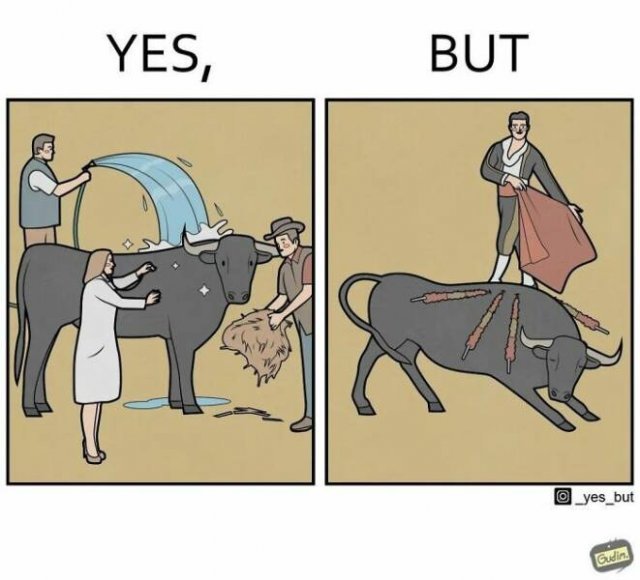
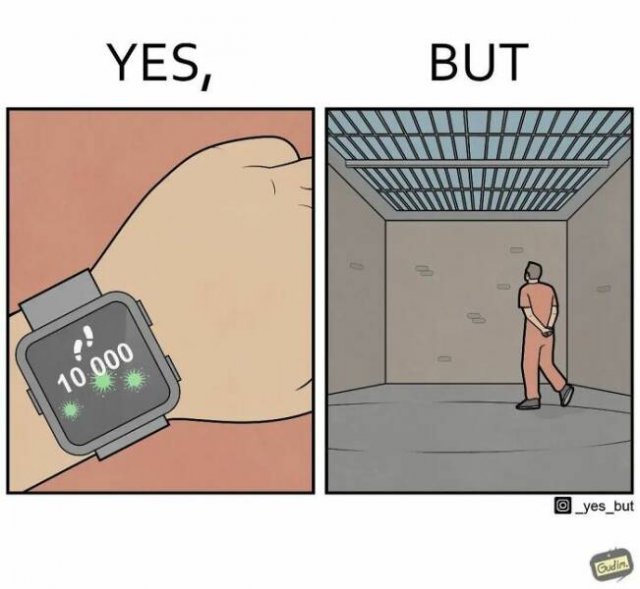
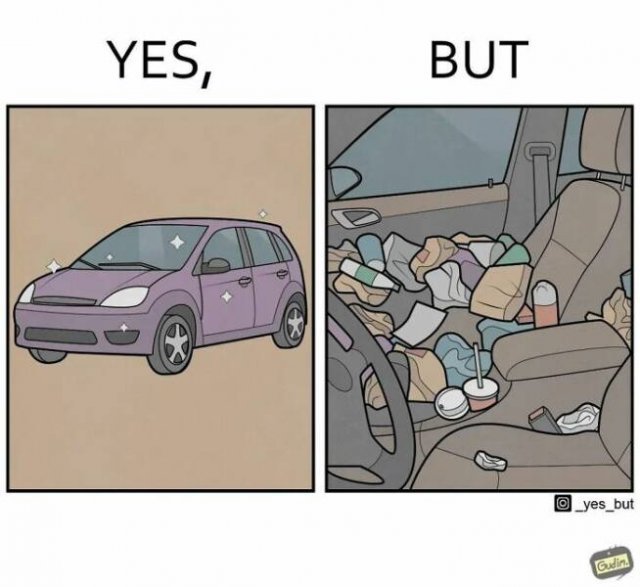
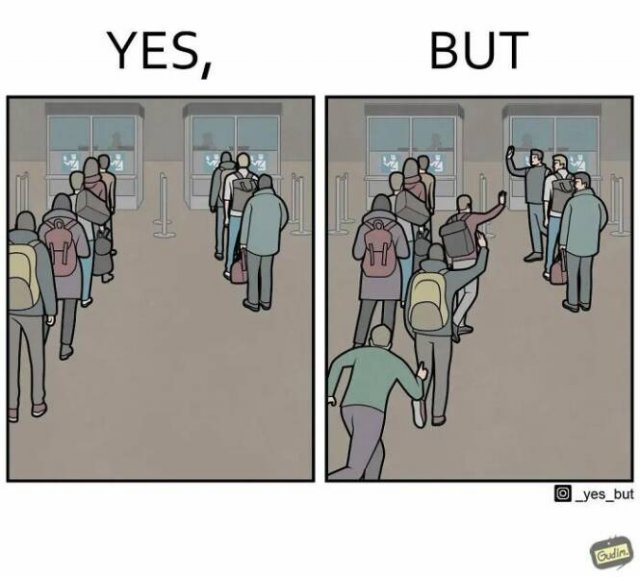

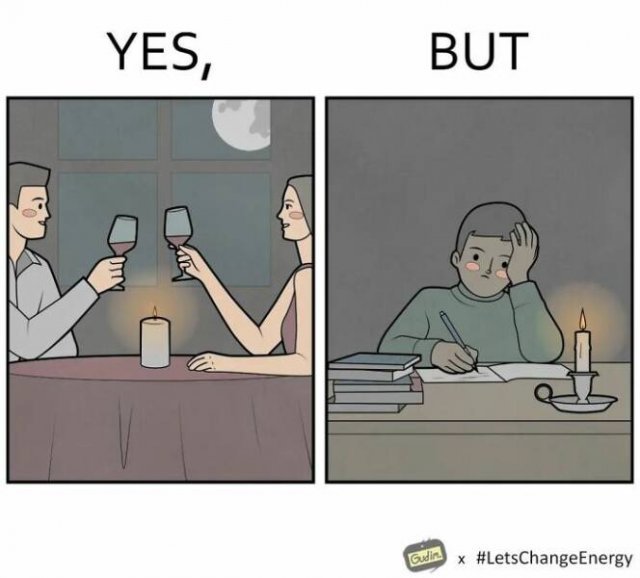
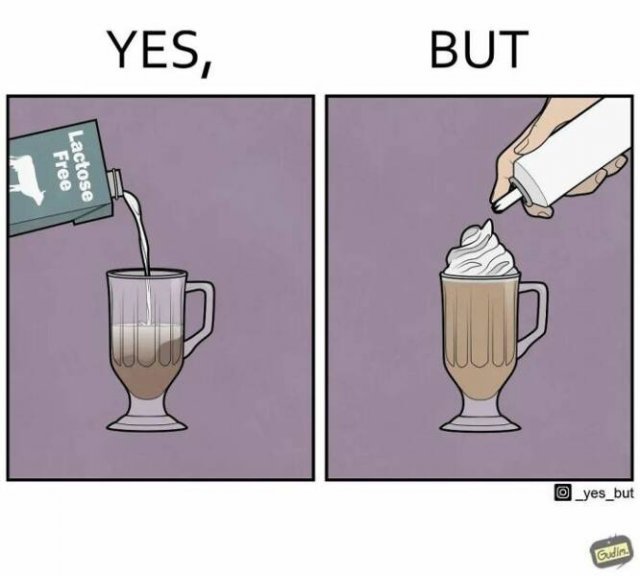


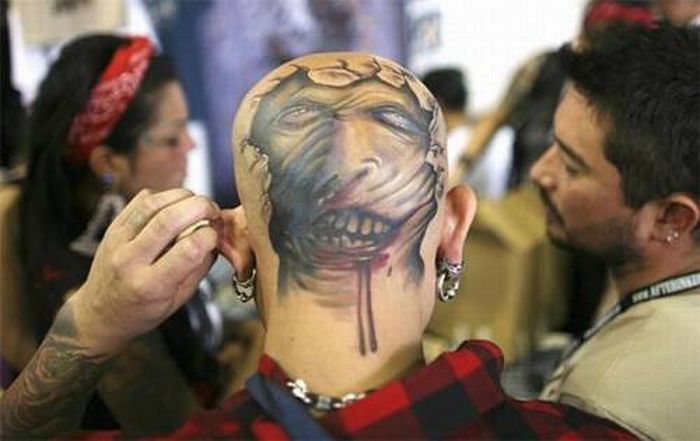




























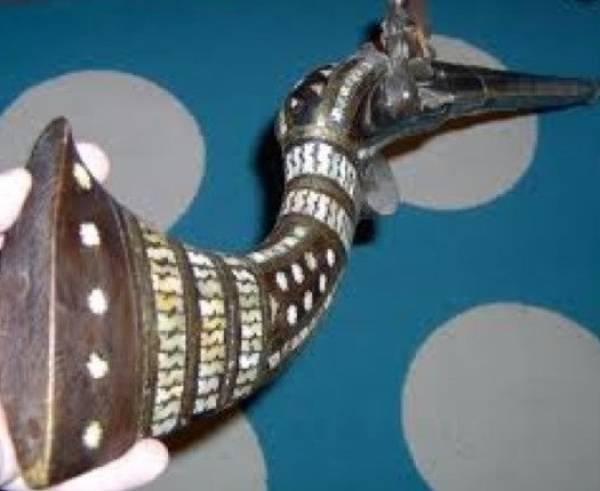

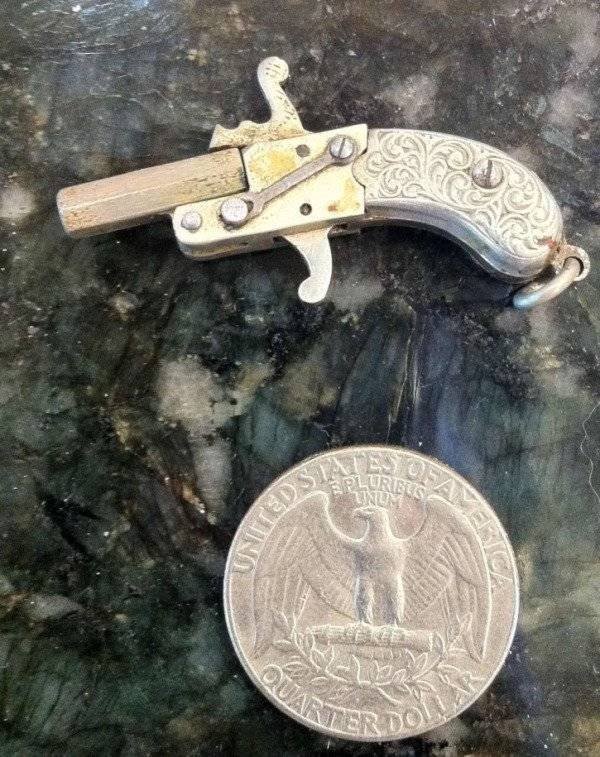
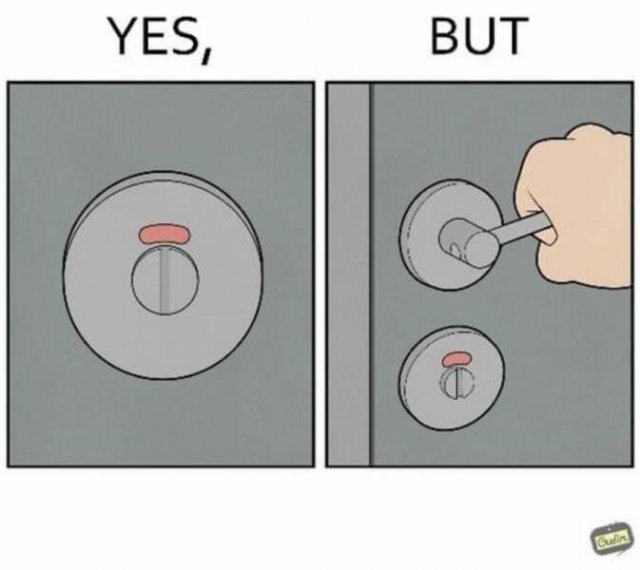

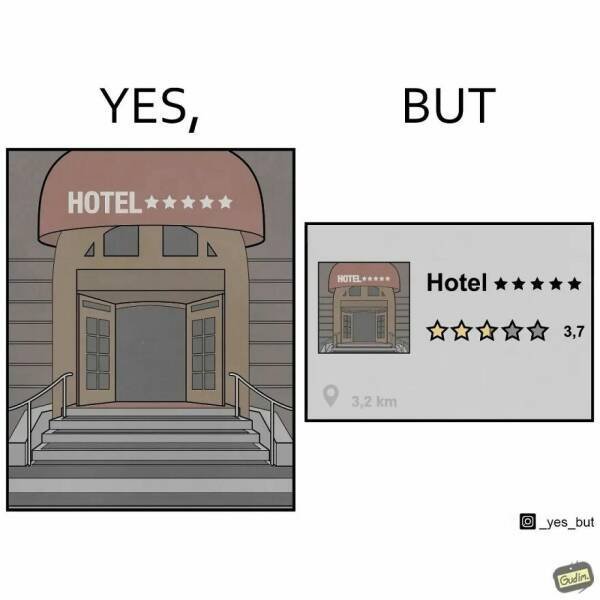

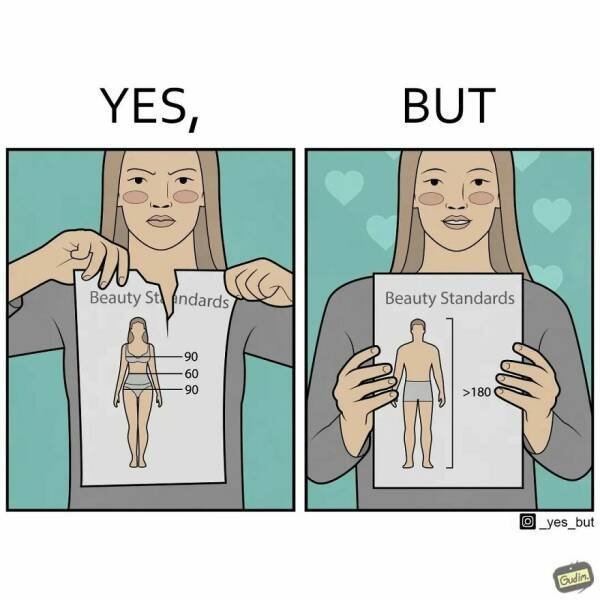

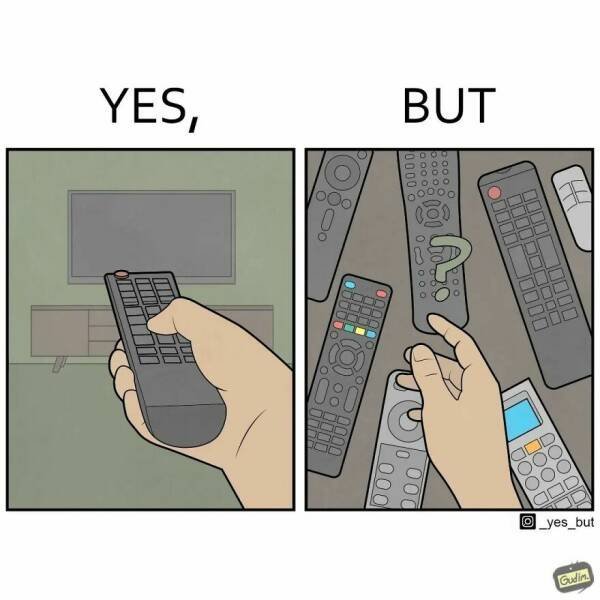




















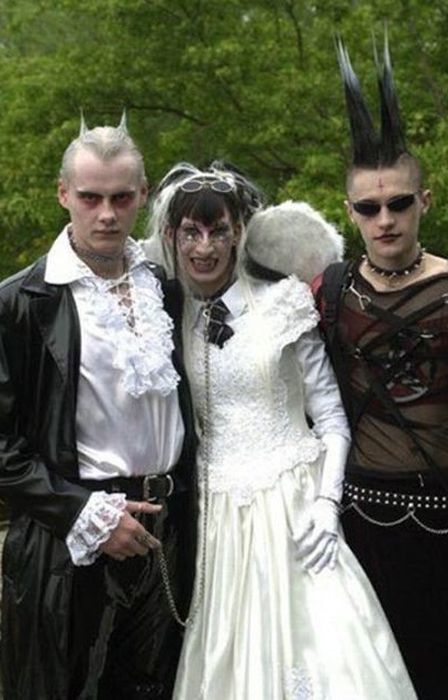








» A.S.ETASKI * Ahoy-hoy! :D Sunday News! *
» *POPULAR CONTENTS* Valley of the SUN Official Newsletter
» Hay tarps
» OTHER WHATSAP APPLICATIONS
» INTERESTING FACTS * What's illegal to wear in 20 countries? *
» YOUTUBE SHORTS WWE...26
» HEY DØVYDAS 2 PAGES
» YOUTUBE SHORTS ANIMALS ONLY...6
» YOUTUBE SHORTS WWE...25
» BRIGHT SIDE...3
» YOUTUBE SHORTS MUSICIANS ONLY...11
» YOUTUBE SHORTS OFF THE WALL...23
» WWE FULL MATCHES
» LET's GO SHORTS & GIF's...11